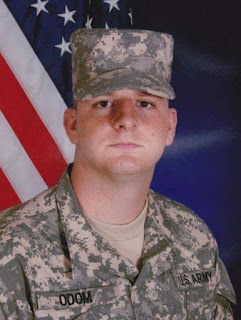Veteran completes Army career thanks to rehab at Tampa VA
VAntager Point
Department of Veterans Affairs
November 20, 2017
Tampa VA occupational therapist Kerri Martin works with Army Veteran Patrick Stamm during his recent reevaluation at the hospital.
He didn’t know it at the time, but he’d suffered major injuries – including a traumatic brain injury – after falling four stories from a hotel balcony in Hawaii on Labor Day Weekend 1996. He’d been celebrating his reenlistment in the Army when the accident happened, and spent the next 40 days in a coma before waking up in Tampa.
While most people would be grateful just waking up at all after a four-story fall, that wasn’t enough for Stamm. With the help of the Tampa’s rehabilitation and therapy programs, the soldier recovered enough that he was able to remain in the Army and complete 16 more years as a military intelligence specialist, including two deployments to Iraq, a stint as an instructor and going back on jump status as a paratrooper, before retiring in 2012.
Stamm was an infantryman and Ranger during his first enlistment, but realized after getting out of the Army that he missed it. He eventually reenlisted and was stationed in Hawaii.
“We were celebrating my being back in the Army and I fell from the fourth floor of the Hale Koa Hotel and Resort,” Stamm said. “I don’t remember exactly what happened, but my fall was broken by the air conditioning unit for the kitchen. That’s how they found me. They said something’s wrong with the AC or something, so they went out to check and there I was.”






















